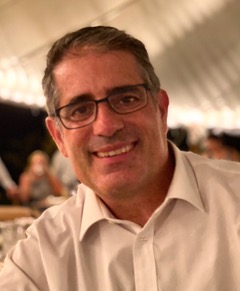We teamed up with Convergence Magazine to ask grassroots organizers from across the country what they learned during the 2022 elections. Here’s what Brendan Walsh from Worker Power in Arizona learned.
What’s an organizing success that you had during the midterms that gives you hope?
We at Worker Power (a new organization born from the decade-long partnership between CASE Action Fund and UNITE HERE Local 11) were able to scale up to be the largest GOTV field program in Arizona, with over 300 canvassers on the ground through election day. We knocked on more than 750,00 doors this cycle, over 100,000 of them in the last six days before the election. Our team had people of all ages and races, from Arizona and other parts of the country. They had tremendous success speaking with voters at the doors. Those voters were largely Latino, immigrant, and young people who are eager to learn more about the election, the candidates, and what it will take to advance the interests of working people in Arizona over and against the anti-democratic forces of the MAGA candidates who dominated the Republican side of the ballot in this election.
What was the most effective message or tactic that the other side used? How did you try to combat it? Were you successful?
First, we must define “the other side.” There are everyday Trump supporters who seem to hate President Biden and everything associated with the Democratic Party. Their sense that something is being taken away from them by immigrants in Arizona leads to actions and positions on their part that, in effect, are discriminatory and, often, blatantly racist. But the other side also includes corporate forces committed to maintaining power and control over working people in the United States (and elsewhere).
Our canvassers faced a lot of harassment by MAGA types they encountered in the street: people brandishing automatic and other firearms, following canvassers in an effort to chase them out of a neighborhood, and even approaching our outdoor launches and throwing food and other items in the direction of our canvass teams. Those tactics were annoying and sometimes frightening, but our field organizers were prepared to stand up to those forms of intimidation in order to achieve our electoral goals. On the corporate and corporate wealth side, we faced a barrage of television and other ads stacked with misinformation and outright lies. These were harder to combat, but our tens of thousands of face-to-face conversations with voters played a large role in counteracting the effect of this misinformation in our communities.
What did you think was going to work that didn’t work?
Well, we have been using virtually the same tactics, with regular technological improvements to our operations, over the last 15 years to change the political culture of Arizona. We don’t always win, but the tactics always work, in as much as they help us build a more informed and empowered community of working people in Arizona.
What did you learn through the midterms that we can use in the next phase of the fight against the MAGA right?
Our communities must not be discouraged by intimidation tactics, temporary victories of the antidemocratic right, or the periodic lack of courage, conviction, and action among our Democratic elected leaders. Nonviolent collective action always works when undertaken in a broad, strategic, and coordinated fashion. We must continue to do the hard work of overcoming our differences in order to mount a defense against the ongoing attacks on democracy and on our communities.
Read more in our View from the Grassroots series:
- Elianne Farhat, TakeAction MN (Minnesota)
- Daniel Altschuler, Maegan Llerena, and Leo Murrieta, Make the Road Action (New York, Pennsylvania, Nevada)
- Tascha van Auken & Divya Sundaram, NY Working Families Party (New York)
- Carrie Santoro, PA Stands Up (Pennsylvania)
- Sam Smith, PA United (Pennsylvania)
- Jay Malone, Texas Gulf Coast Area Labor Federation (Texas)
- Katey Lauer, West Virginia Can’t Wait (West Virginia)
- Christine Neumann-Ortiz, Voces de la Frontera Action (Wisconsin)
- Grecia Lim, Community Change
- Celina Culver, SURJ

